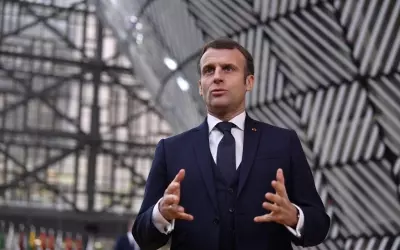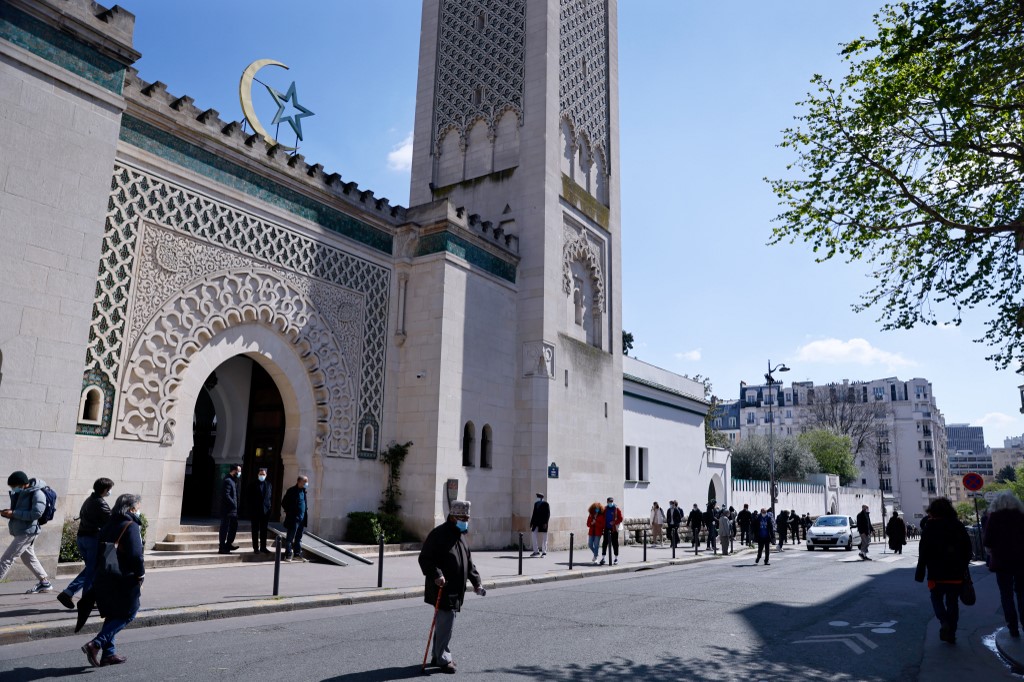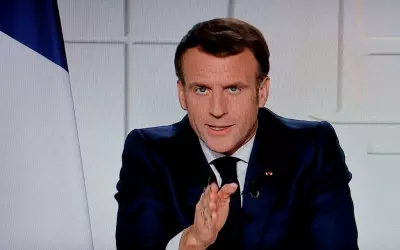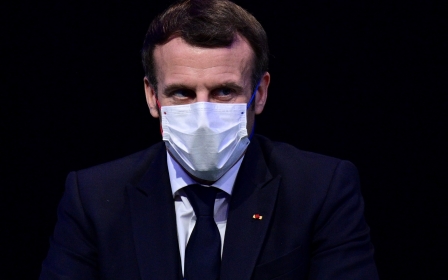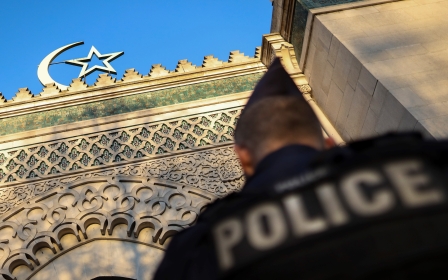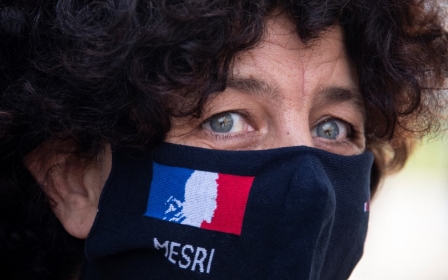Macron's anti-Muslim fake news in the FT needs urgent correcting
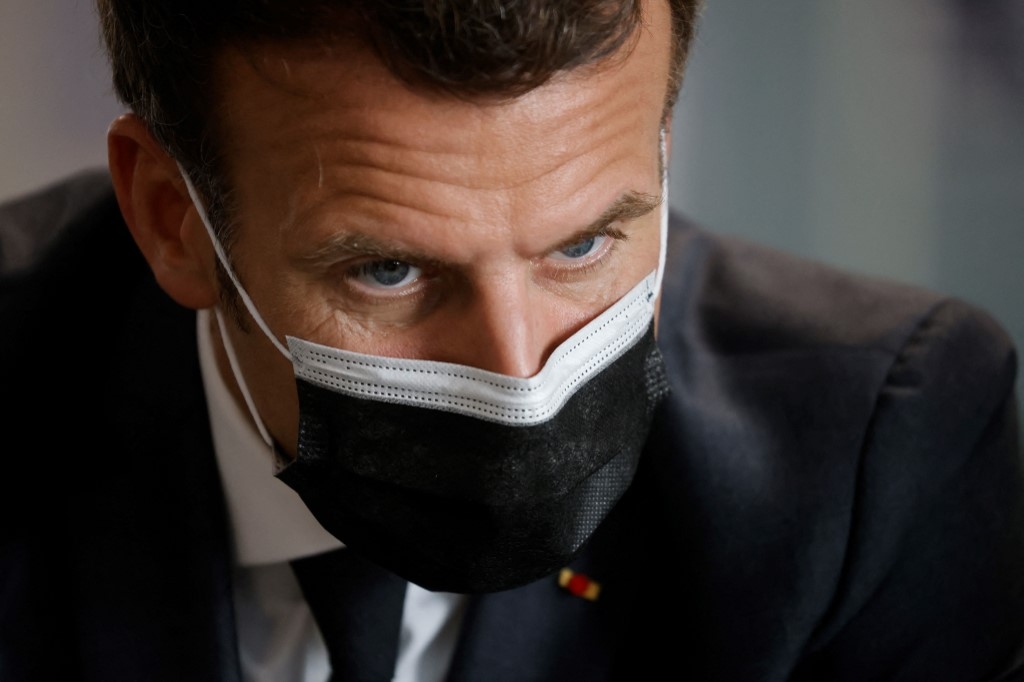
Any political strategist hoping to get a controversial message across to an educated audience would be hard-pressed to look beyond a letter in the Financial Times from the president of France. The FT is widely viewed as a peerless newspaper of record – one read by power brokers everywhere – while the chef d’etat of the French republic is one of the most powerful chief executives on earth.
Hence, Emmanuel Macron was taken very seriously indeed when he spread fake news about his country’s five million Muslims in the FT last November. In a few toxic paragraphs, he conjured up a picture of lawless council estates where Muslim parents are poisoning the minds of little girls while covering their bodies under burkas.
The problem was that hardly anything that Macron wrote was true. The president had simply reproduced despicable tropes with no facts to support them
Without a shred of evidence, the president wrote: “Visit the districts where small girls aged three or four are wearing a full veil, separated from boys, and, from a very young age, separated from the rest of society, raised in hatred of France’s values.”
The president also stated that these children spend their time in hellhole communities surrounded by “hundreds of radicalised individuals, who we fear may, at any moment, take a knife and kill people”. Introducing disturbing biological
If the purpose of this sulphurous prose was to spread collective guilt, it certainly had the desired effect. An actual president had confirmed what venal propagandists have been saying for years – that France has been overrun by alien hordes, and that murderous, cradle-to-grave radicalism is widespread. Everyone from anonymous social media trolls with swastika avatars to the kind of racist pop-philosophers who currently dominate French political thinking now had the president’s backing.
New MEE newsletter: Jerusalem Dispatch
Sign up to get the latest insights and analysis on Israel-Palestine, alongside Turkey Unpacked and other MEE newsletters
Whose fake news?
The letter was a particularly important one, and received much international publicity, because Macron was also using it to accuse the FT of fake news. He was angry about an FT column that, he claimed, had misrepresented his position on Islam. The article by an FT correspondent was wiped off the FT website, while the president’s writing – billed by Macron himself as a collection of “simple facts” – was published in full.
The problem was that hardly anything that Macron wrote was true. The president had simply reproduced despicable tropes with no facts to support them. We now know this for sure because, four months on, nobody has been able to provide a scrap of evidence to prove Macron’s wicked deceit – neither the French authorities, nor the FT.
Following readers’ queries, the FT put barrister Greg Callus, the newspaper’s complaints commissioner, on the case. He was asked to justify a letter that continues to do untold harm to French Muslims, but after an excruciatingly lengthy process, has not been able to do so.
Callus launched an investigation last December, and it was only in March that his convoluted adjudication was published. It stated: “I must admit that I myself was highly sceptical of one aspect of this claim, namely the use of the term ‘full veil’ being used in respect of the head-coverings worn by girls of this age.”
The defamation lawyer added that these claims “trouble me” and that “I might still not be content to positively assert that these facts are true or have been established definitively”. Yet, Callus stopped short of correcting or apologising for these untruths, saying he had “no general jurisdiction to fact-check or adjudicate statements by world leaders or others who appear in the news”.
FT editor Roula Khalaf has in fact opposed a Society of Editors’ statement about the alleged lack of bigotry in the media, noting: “There is work to be done across all sectors in the UK to call out and challenge racism. The media has a critical role to play, and editors must ensure that our newsrooms and coverage reflect the societies we live in.”
Hollow words
In light of the Callus adjudication, Khalaf’s words might sound hollow and hypocritical. This is especially the case now that Macron’s incendiary allegations have been exposed.
In fact, the burka (or niqab) – a full-veil garment that covers a woman’s body, including her face, apart from the eyes – is actually banned in France, and anyone would face a possible prison sentence if they forced a child to wear one. There is not a single recorded incident of a child in a burka, let alone any prosecutions or convictions.
The urban myth that Muslims hide their offspring away, while teaching them to hate, is similarly obscene. This simply plays into macabre legends about communities who prey on the young, including their own.
Instead, calls to relevant bodies – from France’s Interior Ministry, to police and prosecutors – have not yielded supporting facts. Sources there were all baffled by such sensational and reckless fantasies – ones that would instantly make front-page news if they were true. In an era when cameras are everywhere, there are no images to back up Macron’s fabrications about these infant sociopaths either.
More than four months on, shining a light on such chronic perversions of the truth is particularly important, because they continue to play a venomous part in mainstream French politics.
Both Le Pen and Darmanin have disgraceful records for Muslim-baiting, and were more than happy to show off their prejudices to a mass audience
Earlier this year, far-right National Rally leader Marine Le Pen sparred with Interior Minister Gerald Darmanin in a live TV debate about which one of them is toughest on Islam. They were ostensibly discussing the place of religion in a secular republic, and how to deal with criminals who are drawn to terrorism, but as usual, the spreading of collective guilt took precedence.
The terms “Islam” and “Islamist” were regularly interchanged, as Muslims per se were portrayed as a dangerous underclass largely made up of savage misfits prone to suicidal barbarism.
There was no mention of the most high-profile lone-wolf terrorist outrages of last year being carried out by a Russian Chechen, a Tunisian and a Pakistani – instead, the implication was that Macron’s “breeding ground” estates on the edges of major cities, such as Paris and Marseille, produce all the knifemen.
Courting the far right
Both Le Pen and Darmanin have disgraceful records for Muslim-baiting, and were more than happy to show off their prejudices to a mass audience of voters. Le Pen and her father, the convicted racist, antisemite and Holocaust denier Jean-Marie Le Pen, are past runners-up in elections to become president of France. Both represented the National Front, now known as the National Rally, a party founded by extreme nationalists who supported Nazism and France’s collaborating Vichy regime during the Second World War, and indeed by those furious about an independent Algeria.
The party’s current incarnation remains a dynastic vehicle for the Le Pens, with Marine Le Pen currently the favourite to once again go head to head with Macron in the 2022 presidential election, just as she did in 2017.
This is why Macron covets Le Pen votes, and is moving so drastically to the right as he tries to take them. Demonising minority groups by using weasel words is very important to this objective, as is obvious from the passage through parliament of Macron’s draft measures seeking to tackle radicalism.
Macron originally called it a bill to combat “Islamist separatism” – a concept that fitted in neatly with the kind of Muslim estates depicted in his FT letter – but now it is described as legislation “bolstering the respect of the principles of the Republic”.
Enemy within
Such rhetorical tweaks have not stopped the Macron administration from proposing much stricter controls on Muslims, however. Closer monitoring of the perceived enemy within ranges from tougher rules on the funding of religious organisations, to banning home-schooling for Muslim children (even in the middle of a global pandemic, when such classes are being encouraged for all others).
The emphasis is on increased security, and the usual crackdowns on those who display their religious affiliation via their choice of clothing, for example. Thus, another spectacular inaccuracy in Macron’s FT letter was his claim that the French state “never intervenes in religious affairs”.
Perhaps the most disingenuous, however, was Macron’s allegation that “I will not allow anybody to claim that France, or its government, is fostering racism against Muslims”.
As with so much of the president’s double-speak, it is not worth the pink paper it is written on, despite its promotion by certain sections of France’s media.
British outlets should know better. The FT is not a member of IPSO, Britain’s regulatory Independent Press Standards Organisation, but claims to adhere to the IPSO Code in relation to accuracy and accountability. In such circumstances, the FT should stop its complicity in spreading hatred against entire Muslim communities in France, and stand up for the truth by apologising and publishing fact-based corrections to Macron’s letter.
The views expressed in this article belong to the author and do not necessarily reflect the editorial policy of Middle East Eye.
This article is available in French on Middle East Eye French edition.
Middle East Eye delivers independent and unrivalled coverage and analysis of the Middle East, North Africa and beyond. To learn more about republishing this content and the associated fees, please fill out this form. More about MEE can be found here.



